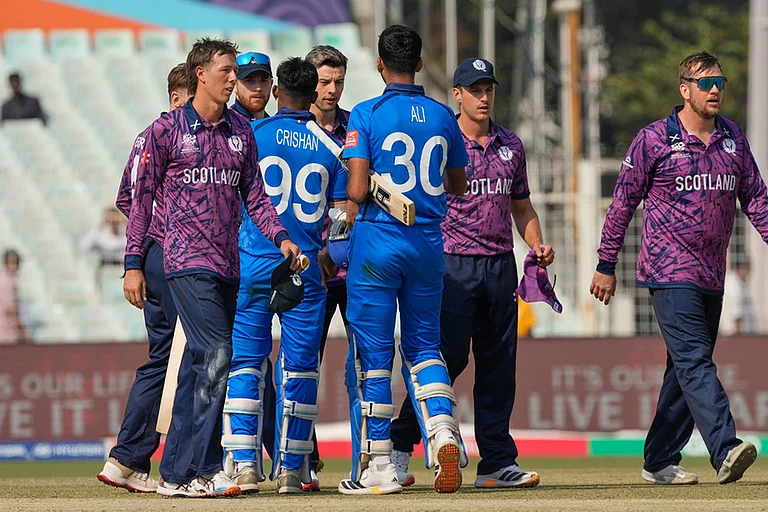Deborah Baker’s The Last Englishmen: Love, War and the End of Empire is essentially a history of science set in the twilight of the Empire in India. Histories of mountain expeditions often tend to be technical narratives, but Baker has delightfully proven otherwise. With archival sources spanning continents, she tracks down protagonists of this tale: W.H. Auden, John Bicknell Auden, Michael Spender and Sudhindranath Dutta. The chronologies of all these lives meet and move out, revolving around World War II.
Figures like Jinnah, Gandhi and Nehru appear, reminding the reader of the doom of war and the gory Partition. In the 1930s, at the same time when repeated failed expeditions in the 1920s accelerated the quest for conquering Everest, soirees at the north Calcutta mansion of Sudhindranath and his Parichay adda (with Shaheed Suhrawardy, Sushobhan Sarkar, M.N. Roy, Hirendranath Mukherjee and Sarojini Naidu) were conducted. The outbreak of war would not just force them to south Calcutta parlours, but also leave them arguing tooth and nail whether to become communists or socialists. The conquered, who had earlier embraced the language, ideology and culture of the conqueror, priding themselves on being intellectual representatives of India, soon felt betrayed at England’s helplessness before Hitler’s fascist forces. The weakening of Britain’s hold over India saw the metaphorical weakening of Sudhindranath’s hold over his durbar friends. War became couched in the truth that there were no friends or enemies when it came to profiteering.
Inter-war survey operations were not just to procure intelligence, but to also secure frontiers by drawing borders and claiming summits. The clamber to Nanga Parvat to showcase domination by German explorers in 1934 already had its precursors—former employers of the English East India Company’s magnetic surveys in the 1850s. At the treacherous Greater Karakoram Survey of 1937 by John Auden and Spender with Ang Tensing, every theoretical discourse on science and colonialism breaks down when they realise that “they weren’t workers, they weren’t natives, they weren’t even soldiers, they were upper middle”.
Almost in the same breath, Baker brings in Subhas Chandra Bose’s defiant, spirited ‘Free India’ broadcasts from Berlin in 1942 and the chilling photographs—skeletal mothers, corpses half-eaten by canines—of the 1943 Bengal famine that were published by The Sunday Statesman. Inexplicable love saw Sheila Bonnerjee (turned Auden) praying that her daughters grow up loving both India and England, and yet be wise to see the faults of both. Yet what sickened Auden and Spender, along with the Parichay adda circle, was to see their beloved Empire’s once golden glow becoming a hollowed phantom of itself, with Churchill declaring that “Indians breed like rabbits”, with Baker writing, “…he said he would have happily done to India, what he’d done to Hamburg”. The Last Englishmen, with its sense of loss, weaves together unrealised dreams, unfulfilled desires and scientific restlessness, making it a fascinating read.





















